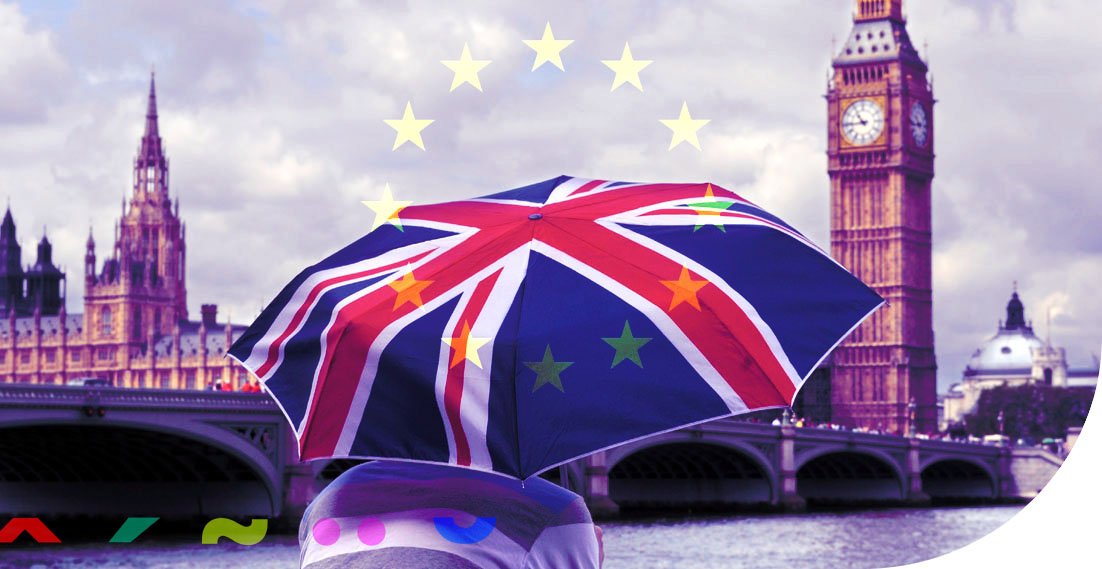What does Brexit mean? What is it and why did it even happen?

Brexit has become a fact. When did it happen? The official date is 31 January 2020 at midnight but the transitional period ended on 1 January 2021. For many entrepreneurs, as well as for many regular citizens, this is associated with several changes in their day-to-day activities. Regardless of all the circumstances that led to Great Britain’s withdrawal from European structures, this fact itself was a great surprise. What does Brexit mean? How did it come about? Find out the answers to these and many other questions.
We provide translation services from English into any language of the world
What is Brexit?
The term “Brexit” itself appeared in 2012 as a result of combining two words: “Britain” and “exit”. It was used for the first time by Peter Wilding, who was then responsible for carrying out a campaign aimed at encouraging the British to stay in the EU. It’s worth noting that Wilding used the term long before it was officially spelled out by the British Prime Minister, David Cameron.
Why did Brexit happen?
It’s worth knowing that the Eurosceptic movements in Great Britain were clear from the very beginning. The first referendum on the country’s exit from the European community took place only two years after its annexation to the EU. This is exactly what happened on 5 June 1975. On that day, the British strongly supported remaining in European structures.
The second referendum took place much later, on 23 June 2016. At that time, the then British Prime Minister, David Cameron announced this referendum on 23 January 2013 during his speech when he also called for a reform of the EU and encouraged the British to stay in the European Communities.
2016 UK referendum results
As it turned out, the incentives were not enough. UK citizens decided on Brexit on 23 June 2016 and the result was 51.89% vs. 48.11% votes. Over 70% of Britons took part in the vote. The referendum itself was theoretically not binding on the British government. Even so, steps have been taken to make Brexit actually happen.
The first steps towards Brexit were only taken after the UK Supreme Court issued a decision on 24 January 2017. The Court stated that the process of Great Britain’s withdrawal from the structures of the European Union could be initiated subject to the consent of the British parliament. An important part of the issued document was the point where the government’s decision did not require approval from the Scottish Parliament, the National Assembly for Wales and the Northern Ireland Assembly
What happened next? The key dates.
Here is the chronological course of events that led to Brexit. Let’s start from the beginning:
5 June 1975 – the first referendum
23 January 2013 – David Cameron announces the second referendum
23 June 2016 – Brexit referendum takes place
2 February 2017 – the so-called “Brexit White Paper” is issued, the first British document defining the relationship of Great Britain with the EU after Brexit
24 January 2017 – The Supreme Court rules on the possibility of starting the Brexit procedure
7 February 2017 – The Scottish Parliament officially supports British MPs who are against Brexit
30 March 2019 – the first date Brexit was to go into effect
12 April 2019 – the second entry into force of Brexit
28 October 2019 – The European Union agrees to extend the Brexit deadline to 31 January 2020
19 December 2019 – The European Commission adopts a contingency plan facing a threat that the UK will leave the European Union without a settlement
23 January 2020 – completion of legislative work on the agreement on the withdrawal of Great Britain from the European Union
29 January 2020 – The European Parliament approves the Brexit agreement
4 December 2020 – EU and UK sign a package of agreements regulating future relations
31 December 2020 – the last day of the transition period
1 January 2021 – the day Brexit becomes effective
What happens next?
After a turbulent period of negotiating agreements regulating the EU’s relations with Great Britain, Brexit has become a reality. The details of the cooperation between the EU and the UK are contained in a package of regulatory agreements, namely:
● in a trade and cooperation agreement;
● in an agreement on cooperation in the field of safe and peaceful use of nuclear energy;
● in an agreement on security procedures for the exchange and protection of classified information.
The first of these contracts has the greatest impact on the daily lives of the EU and UK citizens. Mainly because it covers all issues related to the regulation of certain professions, border crossing or aspects relating to various sectors of the economy.
What does Brexit mean for EU residents?
It’s worth considering what Brexit actually means for Poles. First of all, the conditions for mutual recognition of qualifications will change. So far, for example, higher education diplomas obtained in their home country could be recognized by British entities. After Brexit, this is only possible through certified recognition of a diploma. In order for the recognition procedure to be successful, sometimes the commission may require you to provide additional translation of documents.
Mutual recognition of professional qualifications will also change. Documents issued by your national authority may not be recognized in the UK. You must remember that you may need professional qualifications if you want to work in one of the so-called regulated professions. You can find a list of these professions on the website of the European Commission. Regulatory agreements between the EU and the UK do not cover recognition of professional qualifications, so you should contact an UK authority responsible for your chosen profession to find out more in this regard.
Shopping at a British company and VAT-related issues
You will also experience some changes when it comes to buying in the UK if you live abroad. In this case, however, the change is beneficial to you, especially when it comes to purchasing services. Why? It comes down to the fact that Great Britain is treated as a third country, also in relation to tax matters, including VAT.
When you buy a service from a British company, you pay VAT in Great Britain. Export of services for private individuals to third countries in the UK is not subject to VAT. What does this mean for you? When ordering, for example, translation services from a company based in Great Britain, you do not pay 20% VAT. Of course this applies only if you buy such services as a private individual. We could say that you have a fixed discount of 20%. On top of that, we would like to remind you that lingy.pro is based in Great Britain…
Can you visit the UK?
Another quite noticeable change is when you cross the UK border. Generally, when traveling from the EU to the UK and from the UK to the EU, you will be subject to standard customs clearance. Consequently, the ID card alone is not enough. You will also need a valid passport.
Export to the UK after Brexit
Entrepreneurs who export to the UK will also experience changes. This is primarily because from 1 January 2021 all goods must pass standard customs clearance in order to be released for trade on the British market. However, as the UK government has declared itself, there will be two approaches to imported goods. The applicable approach will result mainly from the classification of the product.
Under the existing rules, export to the UK will take place in relation to e.g.:
● Chemicals,
● Drugs,
● Vehicles,
● Aviation.
Special legal regulations will apply to the following groups of goods:
● Medical devices,
● Railway interoperability constituents,
● Construction products,
● Civilian explosives,
● Products that require eco-design and energy labels.
This is why before deciding to export products to the UK, make sure they are classified first. In some cases, you may have to meet new requirements. And this, in turn, determines all organizational processes in your company.
So what does Brexit mean for you?
The entire process of Great Britain leaving the European Union was quite turbulent. After a few changes related to the actual date of Brexit, it finally happened. Formally, the UK is not a member of the EU from 1 February 2020, however the transition period has expired on 1 January 2021. The relationship between the EU and the UK has since been defined in a package of regulatory agreements. A number of daily activities has changed, including import of services, certified recognition of diplomas, recognition of professional qualifications or export of goods to the UK. What else does Brexit mean? Cheaper purchase of services from companies based in Great Britain. And that includes translation services.
Other articles:
Food product labels and national requirements
What are business models and what are the types?
The 7 Most Important Languages for Business
We provide translation services from English into any language of the world
Marketing translation as the key to success of the fashion industry. Cooperation with a popular fashion brand
We cooperated with many customers on a daily basis. They include local companies, international enterprises and well-known brands. What are the similarities between all of them? Everyone expects high-quality translations that will help in business development. Additionally, professional translations affect their image, contribute to the opinions of recipients and are the decisive factor when it […]
Hemingway Editor and other tools for text proofing and translation
Typically, content writers first note down the message they wish to put across to their audience. Then, they re-read and edit the text. This way, they can achieve better readability, understanding and structure, and at the same time they can correct any errors in the content. It is a complex process, but fortunately there are […]
Translation of advertising slogans – how not to fall into the language trap?
Advertising translation involves the process of transferring advertising messages from one market to another. The advertising discourse is created in a language that is not only a communication tool, but also an expression of culture. This makes ad translation a highly accuracy-demanding activity. Translating slogans requires both a cultural and linguistic connection. Adapting a brand […]
TOP 8 languages for e-commerce purposes. Sourcing customers around the world
Do you manage an e-shop and want to source customers abroad to increase profit? Translations will be the basis for reaching foreign recipients with your offer. You need to start speaking their language and adjust product or service descriptions to the country where you intend to sell them. You’re probably wondering which languages to start […]



